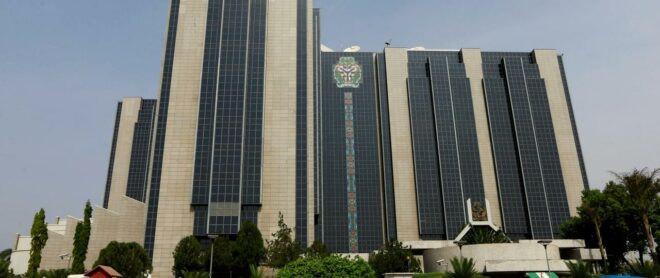iranintl.com – Nigeria has put Iran on its high-risk list over money laundering, cautioning banks and financial institutions about transactions with the regime.
The Central Bank of Nigeria, in a statement, urged deposit money banks and other financial institutions in the country to increase monitoring of transactions involving businesses and individuals from Iran, as well as several other countries. The statement noted that the “Democratic People’s Republic of Korea, Iran, and Myanmar remain on the list of high-risk jurisdictions, subject to ‘Call for Action’.” The central bank added that enhanced due diligence should be applied, and in severe cases, countermeasures may need to be implemented to safeguard the international financial system. Banks were urged to stay vigilant and be aware of any risks associated with transactions involving the listed countries.
The decision follows the Financial Action Task Force (FATF) plenary held in late June, which maintained Nigeria on its grey list and Iran on its blacklist due to Tehran’s failure to comply with global regulations. Nigeria’s action can be seen as a step to improve its standing with the FATF and move away from the grey list.
The Paris-based Financial Action Task Force is an inter-governmental organization that sets international standards for combating money laundering, terrorist financing, and the financing of the proliferation of weapons of mass destruction (WMD). The FATF blacklist does not entail formal sanctions, but financial institutions typically redirect their resources and services away from blacklisted countries to avoid complications.
Nigeria was placed on the grey list in February and has since taken several measures to address the strategic deficiencies in its financial system in collaboration with the FATF. A recent statement from the Nigerian Financial Intelligence Unit indicated that Nigeria’s efforts have led to a reduction of the identified deficiencies from 84 to 15.
Nigeria is Iran’s third-largest trading partner in Africa, and President Muhammadu Buhari has expressed readiness to expand relations with Iran. Buhari stated, “I have interacted with Iranians over many years, especially when I was the petroleum minister, and understand the country and its people. I, therefore, welcome the strengthening of relations between our countries, as we have complementarities, especially in energy production.”
With a population exceeding 213 million, Nigeria is the most populous country in Africa. Its gross domestic product (GDP) surpassed $440 billion in 2021, making it the largest economy in Africa. However, its GDP per capita is approximately half that of Egypt and one-third of South Africa.
Data from the Iranian Industry, Mining, and Trade Ministry reveals that the value of trade between Iran and Nigeria increased from $5 million in 2019 to $18 million in 2020, and exceeded $130 million in 2021.
In 2013, Nigeria’s State Security Service accused a local Shiite cleric, Mallam Abdullahi Mustaphah Berende, of leading a terrorist group backed by Iran that was plotting to assassinate Nigerian officials and attack Israeli and American targets in Nigeria.
Unlike his predecessor Hassan Rouhani, President Ebrahim Raisi and his hardliner supporters do not favor accession to the FATF. However, compliance with FATF requirements is essential for Iran to gain full unfettered access to the global financial system, even if Western sanctions are lifted. Raisi has suggested that his government may prioritize relations with “neighbors and friendly countries,” including China and Russia.
Critics of FATF have argued that accession would expose Iran to US sanctions and limit its ability to support proxy forces like Hezbollah in Lebanon, which are designated or considered terrorist organizations. However, experts note that failure to resolve the FATF issue would be detrimental to Iran’s international economic relations, even with China. FATF is a multilateral organization, and its financial transparency rules apply regardless of whether a country trades in US dollars or not.
 Shabtabnews In this dark night, I have lost my way – Arise from a corner, oh you the star of guidance.
Shabtabnews In this dark night, I have lost my way – Arise from a corner, oh you the star of guidance.



